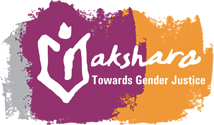Bending Games for Gender Equality
In society, are women and girls treated the same way as men and boys? Not exactly… Whilst many of us realize gender inequality exists in society, we just assume that’s the way things are and will be. But that is not the case! It is possible to have a society that treats men and women equally.
So how do we go about achieving it? How does one ‘learn’ gender equality? Or how does one ‘unlearn’ gender inequality? Akshara believes we can begin this dialogue with youth using an educational tool developed, called the Yuvak and Yuvati Mela or the Youth Fair .
What is the Mela ?
Akshara has developed a methodology of using ‘Melas’, or ‘Fairs’ to promote gender awareness amongst young people. The concept was developed so that they could become gender conscious, to understand the discrimination women and girls face at home, at school, and in their communities. The Mela aims to create spaces for constructive dialogues on gender norms, roles, and discrimination through a series of contextualized, simple games adapted from traditional games. This way, youth are engaged in a fun and dynamic way whilst also becoming gender consciousness.
How does the Mela work?
Melas are held within communities. Akshara partners with local volunteers from organizations on the ground to handle the games and info stalls and discussions . We have developed a set of manuals to equip our partners with an understanding of the games as well as the issues they would like to explore. Akshara also conducts four-day training workshops with the volunteers for further training on gender perspectives.
You can see the Mela in action at the following URL:
What does a Mela look like?
The Melas are held in public spaces, such as schools or colleges or open grounds, organized by the local community partners. There are a number of stalls set up, each with a different game. A facilitator, or set of facilitators, sit at each stall and explain and moderate the games for the youth participants.
Roadside Romeo is an example of a game developed by us to understand sexual harassment faced by girls and women. This game is to enable young women to accept their feelings about sexual harassment and to give them a chance to express themselves. The game also underscores the fact that sexual harassment is a problem faced by all women cutting across class, caste and religion. The game is based on Pin The Tail on the Donkey, but we replace the picture of a donkey with a young man who is shown winking or whistling . Replace the tail with a small-sized shoe. Replace the action of “pinning the tail” with “hitting the harasser”. The blindfold signifies that women usually turn a blind eye to such incidents. The picture of a ‘roadside Romeo’ represents men who ‘tease’ or sexually harass women.
A facilitator explaining the rules of the Roadside Romeo game and participants playing


Below are participants tackling the Obstacle Race with their peers cheering them on

Akshara team members training volunteers from local organizations that administer the Melas


Impact of the Mela
Participants have enjoyed themselves immensely and at the same time learnt about their rights and gained a better understanding of gender and themselves. The Mela trainings create a pool of facilitators thoroughly trained in gender concepts. Every Mela brings spontaneity and new ideas or learnings based on the changing participants. Each child or adolescent interprets and engages with the games slightly differently, thereby giving us and their peers new insights. Every Mela has contributed to knowledge-building, incorporating new ideas and constructive feedback that allow for the Mela concept to be a continuously evolving and improving entity that better serves its constituencies. This is evidenced by the diversification of the Mela and its geographical dispersion.
Akshara has reached about 30,000 young girls and women since we first organised a Yuvati Mela in Mumbai in 1998 that drew a crowd of 500 people. Subsequently, we have expanded the scope of the Mela to include a Yuvak Mela (for boys), a Kishore-Kishori Mela (for adolescent girls and boys), a Ma-Beti Mela (for mothers and daughters) and starting from 2017, a Muslim Girls Mela. We have managed to export it beyond Mumbai, Maharashtra to four organisations based in West Bengal, Uttar Pradesh, Andhra Pradesh/Telangana (Hyderabad).
